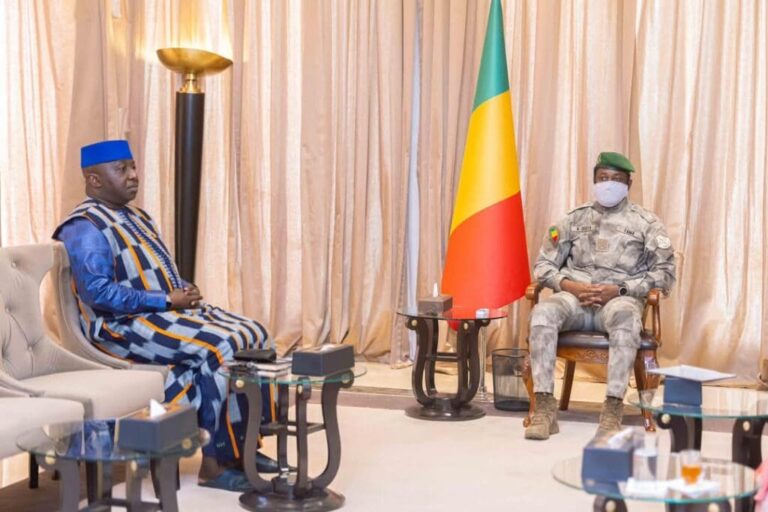Are we heading towards a thaw between Bamako and Algiers? The President of the Malian transition, General Assimi Goita, received on February 20, 2025, General Mohamed Amaga Dolo, the new ambassador designated to Algeria.
Appointed by presidential decree in October 2024, the diplomat stressed the importance of the “historical, geographical and economic ties” uniting the two countries. This appointment comes at a time when bilateral relations have been experiencing a marked deterioration since the end of 2023.
The diplomatic crisis began in December 2023 following the reception in Algiers of Malian imam Mahmoud Dicko by President Tebboune, perceived as interference by Bamako. Both Bamako and Algiers recalled their respective ambassadors son afterwards.
The escalation continued with Mali’s unilateral cancellation in January 2024 of the 2015 Algiers peace agreement, accusing the North African country of “hostile acts”.
Tensions further escalated in August 2024 after Algerian criticism at the United Nations of Malian military operations, with Bamako denouncing it as “terrorist propaganda”.
Early 2025 saw a new peak with the trading of harsh statements between the foreign ministers on Mali’s anti-terrorism strategy.
This diplomatic snafu comes against the backdrop of a volatile security situation in northern Mali. The creation in November 2024 of the Azawad Liberation Front, a new pro-independence coalition, and the intense clashes
around Tinzaouatène in July 2024 have exacerbated regional tensions.
While the appointment of General Dolo demonstrates a willingness to engage in dialogue, disagreements persist over Algeria’s role in the Malian crisis and its alleged support for the rebels.
Future relations between Bamako and Algiers will depend on the ability of the two neighbours to overcome their differences, in spite of their historical ties.
MD/ac/Sf/fss/as/APA


